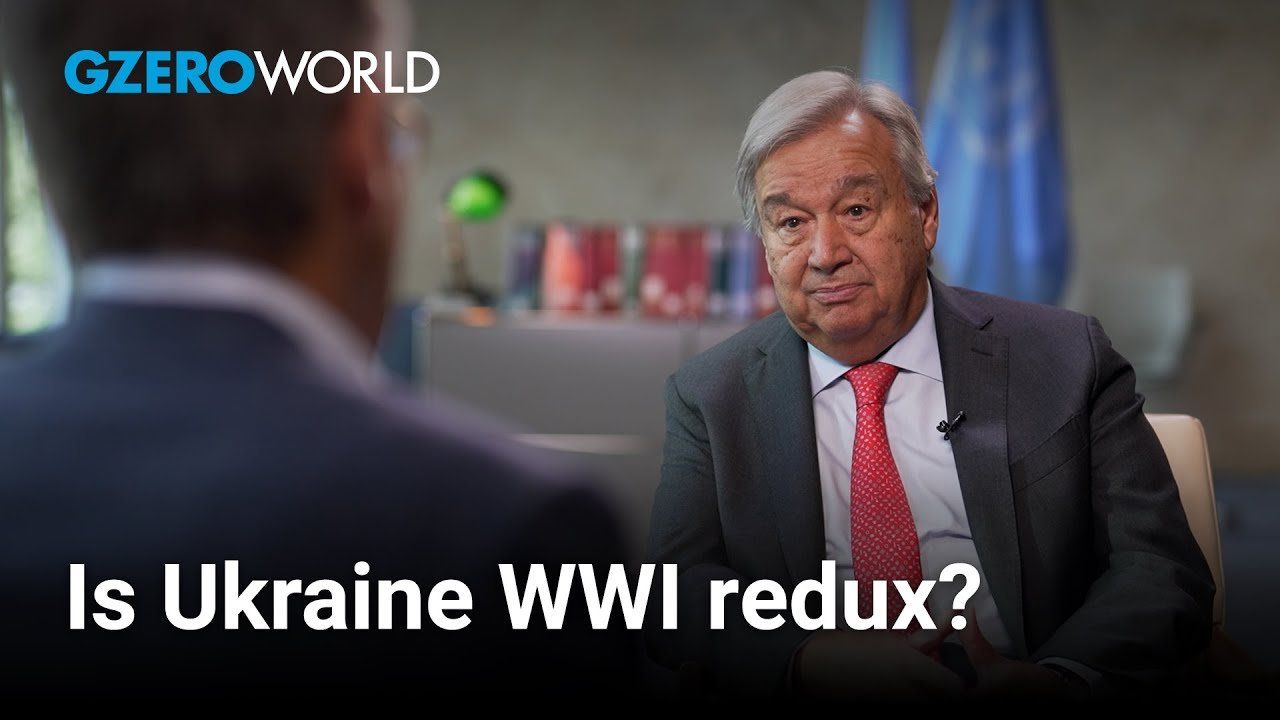GZERO World Clips
UN chief: We must avoid the mistakes that led to World War I

UN chief: We must avoid the mistakes that led to World War I | GZERO World

Winston Churchill once said: "Those that fail to learn from history are doomed to repeat it." Those words ring as true today as they did in 1948. Churchill, who served in the First World War before he led Britain through the Second, knew all too well the miscalculations that presidents and prime ministers made leading up to the Great War.
A century later, the UN's top diplomat, Secretary-General António Guterres, fears that world leaders today are making the same mistakes that got us into WWI. In an exclusive interview for GZERO World with Ian Bremmer, Guterres explains what makes him so wary of this moment in geopolitics.
"We really need stronger and reformed multilateral institutions to be able to coordinate on what is becoming a multipolar world," Guterres tells Bremmer. "I would remind you that Europe, before the First World War, was multipolar. But because there was no multilateral governance institutions at the European level, the result was the First World War."
US Rep. Alexandria Ocasio-Cortez (D-NY) speaks during the Munich Security Conference (MSC) in Munich, Germany, on February 13, 2026.
Vice President JD Vance and Democratic Rep. Alexandria Ocasio-Cortez, both potential 2028 presidential candidates, offered very different foreign policy visions at the Munich Security Conference.
In a new Global Stage livestream from the 2026 Munich Security Conference, New York Times White House and national security correspondent David Sanger moderates a conversation with Ian Bremmer (President & Founder, Eurasia Group and GZERO Media), Brad Smith (Vice Chair & President, Microsoft), Benedetta Berti (Secretary General, NATO Parliamentary Assembly), and Wolfgang Dierker (Global Head of Government Affairs, SAP) on how technology and defense are colliding in real time.
At the 2026 Munich Security Conference, NATO Parliamentary Secretary General Benedetta Berti explains why hybrid threats, from undersea cable sabotage to disinformation, energy coercion, and cyberattacks, are no longer isolated incidents but a defining feature of today’s security environment.
In this Quick Take from Munich, Ian Bremmer examines the state of the transatlantic alliance as the 62nd Munich Security Conference concludes.